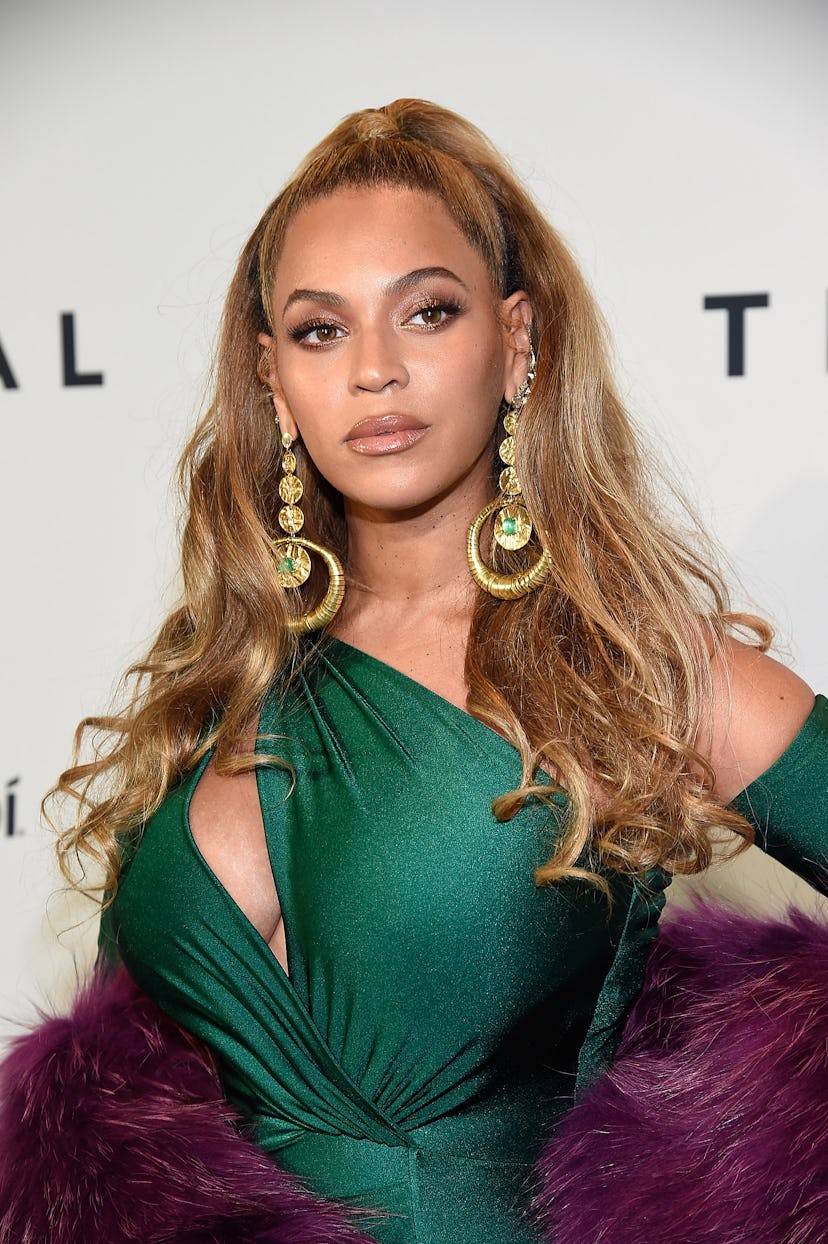Beyoncé Has Ditched Diet Culture In Favor of Full Mental Health

At 19 years old, Beyoncé had a major run-in with the harsh expectations that show business puts on women’s bodies. She was going through a moment of insecurity at the time, after gaining some weight and having trouble fitting into the designer sample sizes she was being sent. So she turned around and wrote “Bootylicious,” which would go on to top the charts for Destiny’s Child. In the years since, the singer has learned to balance the demands her career puts on her body with a focus on mental health and self-care.
The revelations come in a rare Q&A for Harper’s Bazaar’s September issue cover story. Technically timed to her Ivy Park clothing line’s next drop, the article also centers around Beyoncé’s upcoming 40th birthday on September 4. It’s an anchor for Bey’s reminiscing, which is broken down into musings from every decade of her life—and the lessons of self-care she’s learned along the way.
The artist first recalls an injury that impacted her already shy demeanor, which she said helped her to be an imaginative dreamer. “I had my first vocal injury at 13 from singing in the studio for too many hours,” she says. “We had just gotten our first record deal, and I was afraid I had developed nodules and destroyed my voice and that my career could be over. The doctors put me on vocal rest all summer and I was silent once again.”
Her silence didn’t last long, though—as a teenager and in her 20s, Beyoncé focused on launching her career, pouring herself into her work. That also meant making serious sacrifices; her aim to buck negative stereotypes against Black women and to achieve number-one status and to ultimately work for herself, completely independently, meant she had to give a lot of life up. “If something wasn’t helping me reach my goal, I decided to invest no time in it,” she recalls. “I didn’t feel like I had time to ‘kiki’ or hang out. I sacrificed a lot of things and ran from any possible distraction.” Beyoncé details a host of anecdotal gems during this time: she made the videos for “Single Ladies” and “If I Were a Boy” and the artwork for I Am…Sasha Fierce, shot by Peter Lindbergh, black and white because studio executives told her not to. She taught herself Final Cut Pro to direct her concert film for the I Am…World Tour. And Beyoncé recalled the moment that inspired “Bootylicious.” “I remember when I started hearing people criticize me after I had put on some weight,” she says. “I was 19. None of the sample clothes fit me. I was feeling a bit insecure from hearing some of the comments, and I woke up one day and refused to feel sorry for myself, so I wrote ‘Bootylicious.’ It was the beginning of me using whatever life handed me and turning it into something empowering to other women and men who were struggling with the same thing.”
It’s a credo that’s led the artist into the next phase of life, she explains—one that is centered around taking care of herself and her family at all times. “I’ve personally struggled with insomnia from touring for more than half of my life,” she says. “Years of wear and tear on my muscles from dancing in heels. The stress on my hair and skin, from sprays and dyes to the heat of a curling iron and wearing heavy makeup while sweating on stage. I’ve picked up many secrets and techniques over the years to look my best for every show. But I know that to give the best of me, I have to take care of myself and listen to my body.”
That means ditching the diets that have been cornerstones of Beyoncé’s career (any Bey fan knows she diets and trains with a militaristic fervor before tours and album releases, and we all remember her saying “And I’m hungry” while munching on an apple during the preparation for Homecoming). “In the past, I spent too much time on diets, with the misconception that self-care meant exercising and being overly conscious of my body,” said the singer. “My health, the way I feel when I wake up in the morning, my peace of mind, the number of times I smile, what I’m feeding my mind and my body—those are the things that I’ve been focusing on. Mental health is self-care too. I’m learning to break the cycle of poor health and neglect, focusing my energy on my body and taking note of the subtle signs that it gives me.”